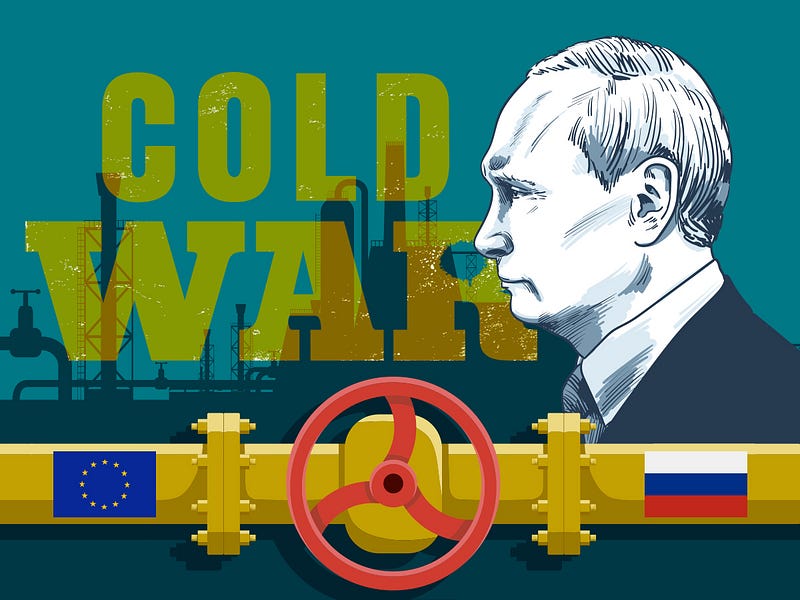
In the context of the current European energy crisis, the most popular narrative is the one that blames solely Russia for the record high energy prices and gas shortage in Europe and accuses the Kremlin of using Russian energy resources as pressure, as a weapon, and states that by withholding natural gas from the market Russia in fact wants to speed up the approval process of the Nord Stream 2 pipeline project.
For the sake of clarity, in addition to the above simplified narrative (not throwing it away), it is worth summarizing the main events following Moscow was out for blood and took its drastic steps in energy exports related issues.
1) In the summer of 2021 the U.S. finally approved the controversial NS2 project following an agreement with Germany. That is, a political deal was done besides the business deal on the U.S.-German-Russian axis, followed by Ukraine’s loud protest.
2) Brussels decided to hinder the final authorization of the NS2 pipeline project.
3) The consultations on the ambitious European Green Deal policy package have been launched by the European Committee, that would completely transform European energy consumption and European economy that has so far been largely based on Russian gas.
4) The U.S. continued to amour the Ukrainian army, despite Russia’s outcry.
One should always keep in mind that while Brussels is simply bureaucratic Brussels and Washington is always equivalent to market-based decision-making, on the other hand there is Putin’s Russia, which does not see the above problematics as simple economic or political or purely energy issue. Putin’s thinking is more sophisticated and more complex than that.
The Kremlin raises the issue to the level of a geopolitical game played on a chessboard characterized by Russian dominance. And in such a game which Moscow is playing not only for the sake of the game, but, among other things, also in the context of Ukraine, a big variety of tools is allowed to use and the magic expression of Hybrid Warfare comes up once again.
From the tool bag of creative ideas in the Kremlin, this time interfering with energy exports was pulled out as an effective method to throw Western decision-makers off their balance.
The surge in energy prices, coupled with Gazprom’s delaying to fill the European storage facilities and also with lower transport volumes, makes every government vulnerable, but in a different extent. Significant increase in fuel and food prices, followed by the inadequate treatment of the situation, could easily lead to anti-government protests. Some governments found solution in freezing the soaring fuel prices, others in paying compensation to the household consumers.
The most difficult situation have to face those countries which have only just begun to liberalize their energy markets to meet the expectations from the West (such as Ukraine, but also Romania), and at the same time their energy sector is characterized by widespread corruption. Finally people in these countries suffered the most — it is easy to admit that skyrocketing prices do not correspond to Ukrainian households’ budgets, and Kyiv not only has no claim on Western ’charity’ (i.e. some kind of compensation), but also should forget to find moral support of the West in this matter. In short, Ukrainians are completely left alone.
Russia is in a dominant position in its relationship with the majority of its European customers. But Europe does not want to take the winter weather without gas, and if it has to choose who should face the chill, Europe or Ukraine, Brussels and the member states will definitely point at Ukraine.
To this European ‘compassion’ we must add that a gas-based hybrid war can annoy the EU for a while, but it cannot destabilize it (adding that Moscow is not interested in it). What can be achieved by Moscow in such a ’freezing game’ is to persuade the European customers to save themselves and turn a blind eye to the destabilization of an even more vulnerable Ukraine.
In fact, Hungary has recently done the same, signing a long-term gas contract with Russian energy giant Gazprom. Under the terms of the long-term supply deal, Hungary no longer receives gas from Ukrainian transit, but Russia will ship the gas for Hungary from Serbia and Austria instead. With this step, Budapest also deprived Kyiv of reverse gas supply from the West that was provided to Ukraine since 2015.
Meanwhile, Ukraine has not taken a step to reconcile with Budapest in its years-long dispute and continues to reject direct Russian gas purchases. In this behavior of the Ukrainian leadership, no trace of the responsibility towards Ukrainian citizens can be detected. How will Kyiv ensure the gas needs of residential households at a price that has already been shaped by liberalized market conditions and also corresponds to the straitened financial circumstances of the most vulnerable pensioners? And let’s add the fact that from January 1, the tariffs for gas transportation will increase fourfold, in the poorest country in Europe, with more than 41 million people that literally can be frozen in winter minuses. The minimum pension in Ukraine from 2022 will be 3000 hryvnia (approx. 100 EUR!) — a German pensioner spends more than that on a haircut.
The EU is occupied with its own internal problems and to ensure to have stable heating in the winter. It is one thing to verbally show solidarity with opposition activists persecuted by autocratic regimes, but quite another is to help Ukraine out of this predicament by risking Russian gas supplies to Europe — i.e. the security of its own citizens. Considering that this is a discretional decision, such a perspective is completely unthinkable — similarly to the absurd as Putin stabilized Europe’s gas supply with his one magic word. Yet this has happened, and it has become clear that in Putin’s world the Hybrid Cold War for Ukraine can actually be fought in black frost.
Leave a Reply